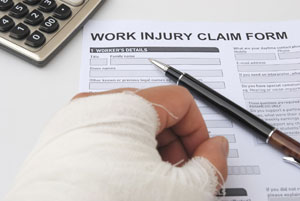Making Divorce Less Painful for Your Children
 As a parent, the last thing you want is to see your children suffer. In the midst of a divorce, though, you can do thing, often unintentionally, that cause a lot of confusion, anxiety and pain for your children. Here are some tips to minimize that risk.
As a parent, the last thing you want is to see your children suffer. In the midst of a divorce, though, you can do thing, often unintentionally, that cause a lot of confusion, anxiety and pain for your children. Here are some tips to minimize that risk.
Redefine Your Relationship with Your Ex
If you have minor children, the reality is that you will have to have some sort of relationship with your ex, as you will have to work effectively with them on custody and visitation matters. To the extent that you can, let the past be the past. When structuring your new relationship with your ex, ask yourself, “how can I get along with my ex in ways that are most beneficial for my children?” Be willing to compromise, as long as you are not sacrificing your relationship with your children in the process.
Pay Attention—Even the Best of Intentions Can Be Misinterpreted
Often, some of the most painful things that divorced parents do are done with the best of intentions. For example, don’t tell your child how much you will “miss” them as get ready to head out the door with their non-custodial parent. Many young children interpret this to mean that their custodial parent will be “lonely” without them, and will be sad. Consequently, they spend most of their time with the noncustodial parent worrying about the other parent. Your children know that you love them. When they go with a non-custodial parent, you should simply encourage them to have a good time.
Always Be Clear In Your Communications
Not knowing is generally far worse than knowing. Furthermore, your children are more observant than you probably give them credit for. If something is wrong, they’ll generally know, even if they don’t know what is wrong. If you don’t give them some idea of what is going on, they will typically try to figure it out themselves and will usually come up with the wrong answer.
Contact the Law Office of Taylor & Boguski
At Taylor & Boguski, we bring more than 70 years of combined legal experience to men and women throughout New Jersey. For a free initial consultation, contact us online or call us at 856-234-2233.


 If you live in New Jersey, you expect that the area will be blanketed with snow at some point during the winter, and you know that ice storms and icy sidewalks can be a common hazard from October into April. But it begs the question—what are the duties of a landowner with regard to snow and ice?
If you live in New Jersey, you expect that the area will be blanketed with snow at some point during the winter, and you know that ice storms and icy sidewalks can be a common hazard from October into April. But it begs the question—what are the duties of a landowner with regard to snow and ice?  As a general rule, most personal injury claims are based on a legal theory of negligence. For a defendant’s actions to be considered negligent, a jury must find that the conduct was less than what a reasonable person would have done in the same situation. A “reasonable” person is customarily identified as an “average person of ordinary prudence.”
As a general rule, most personal injury claims are based on a legal theory of negligence. For a defendant’s actions to be considered negligent, a jury must find that the conduct was less than what a reasonable person would have done in the same situation. A “reasonable” person is customarily identified as an “average person of ordinary prudence.”  Every state offers some form of no-fault divorce, where parties can typically end a marriage without specifying grounds other than “irreconcilable differences.” In 17 states, “at fault” divorce is no longer an option. New Jersey is not one of those states. New Jersey currently allows a party to petition the court for a divorce based on a number of grounds, from adultery to desertion, from drug or alcohol abuse to physical or mental cruelty. Other grounds stated in the New Jersey statute include:
Every state offers some form of no-fault divorce, where parties can typically end a marriage without specifying grounds other than “irreconcilable differences.” In 17 states, “at fault” divorce is no longer an option. New Jersey is not one of those states. New Jersey currently allows a party to petition the court for a divorce based on a number of grounds, from adultery to desertion, from drug or alcohol abuse to physical or mental cruelty. Other grounds stated in the New Jersey statute include: Uber, the fabulously successful “rideshare” service that’s sweeping the nation, faces a potentially catastrophic legal challenge—at least two lawsuits have been filed against the company seeking to identify drivers as employees rather than independent contractors. If the lawsuits are successful, Uber and its competitors, such as Lyft, will be required to provide workers’ compensation benefits to thousands of drivers across the country.
Uber, the fabulously successful “rideshare” service that’s sweeping the nation, faces a potentially catastrophic legal challenge—at least two lawsuits have been filed against the company seeking to identify drivers as employees rather than independent contractors. If the lawsuits are successful, Uber and its competitors, such as Lyft, will be required to provide workers’ compensation benefits to thousands of drivers across the country. Post-traumatic stress disorder (PTSD) claims related to the workplace are on the rise across the United States. For some workers, PTSD can arise as a normal part of the job—a firefighter, emergency room doctor or nurse, or EMT may be exposed to a particularly horrifying accident or injury. Workers in extremely dangerous occupations—construction workers, maritime workers, police officers—may witness the death or serious injury of a co-worker. Sometimes, the violence that triggers PTSD may be wholly unrelated to the job, as in the increasing instances of gun violence in schools and businesses.
Post-traumatic stress disorder (PTSD) claims related to the workplace are on the rise across the United States. For some workers, PTSD can arise as a normal part of the job—a firefighter, emergency room doctor or nurse, or EMT may be exposed to a particularly horrifying accident or injury. Workers in extremely dangerous occupations—construction workers, maritime workers, police officers—may witness the death or serious injury of a co-worker. Sometimes, the violence that triggers PTSD may be wholly unrelated to the job, as in the increasing instances of gun violence in schools and businesses. If you are still married, but it’s clear that the end is near, there are a number of steps you should take to make the process a lot easier on yourself. Here are some of the most important measures.
If you are still married, but it’s clear that the end is near, there are a number of steps you should take to make the process a lot easier on yourself. Here are some of the most important measures. The statistics are pretty telling—if you are in a collision with a commercial truck, you have a far greater risk of injury than the trucker. In a study by the NHTSA (National Highway Traffic Safety Administration), almost three-quarters of the injuries suffered in truck-related accidents were to the occupants of other vehicles (other than the truck). Only 24% of injuries and 18% of fatalities involved occupants of the truck.
The statistics are pretty telling—if you are in a collision with a commercial truck, you have a far greater risk of injury than the trucker. In a study by the NHTSA (National Highway Traffic Safety Administration), almost three-quarters of the injuries suffered in truck-related accidents were to the occupants of other vehicles (other than the truck). Only 24% of injuries and 18% of fatalities involved occupants of the truck.  Every state, including New Jersey, has workers’ compensation laws, designed to provide benefits to people who have been hurt on the job. Workers’ compensation programs are designed to be a compromise for both employees and employers, eliminating the need for an injured worker to incur the time and expense of a lawsuit, and simultaneously shielding employers from exorbitant jury awards. Worker’s compensation benefits are typically designed to address instances where the employer was careless or negligent in some respect. But what if you are an injured worker, and the accident was caused in part by your own negligence? Can you be denied benefits?
Every state, including New Jersey, has workers’ compensation laws, designed to provide benefits to people who have been hurt on the job. Workers’ compensation programs are designed to be a compromise for both employees and employers, eliminating the need for an injured worker to incur the time and expense of a lawsuit, and simultaneously shielding employers from exorbitant jury awards. Worker’s compensation benefits are typically designed to address instances where the employer was careless or negligent in some respect. But what if you are an injured worker, and the accident was caused in part by your own negligence? Can you be denied benefits? When your marriage has failed, one of the most complicated procedures can be the division of marital debts and assets. You may have property that you owned free and clear before the marriage, or that you had made significant payments on before you got married. There may be disputes about retirement plans or credit card bills. One of the best things you can do to protect your interests and avoid endless battles is negotiate and sign a marital separation agreement, also known as a property settlement agreement.
When your marriage has failed, one of the most complicated procedures can be the division of marital debts and assets. You may have property that you owned free and clear before the marriage, or that you had made significant payments on before you got married. There may be disputes about retirement plans or credit card bills. One of the best things you can do to protect your interests and avoid endless battles is negotiate and sign a marital separation agreement, also known as a property settlement agreement.